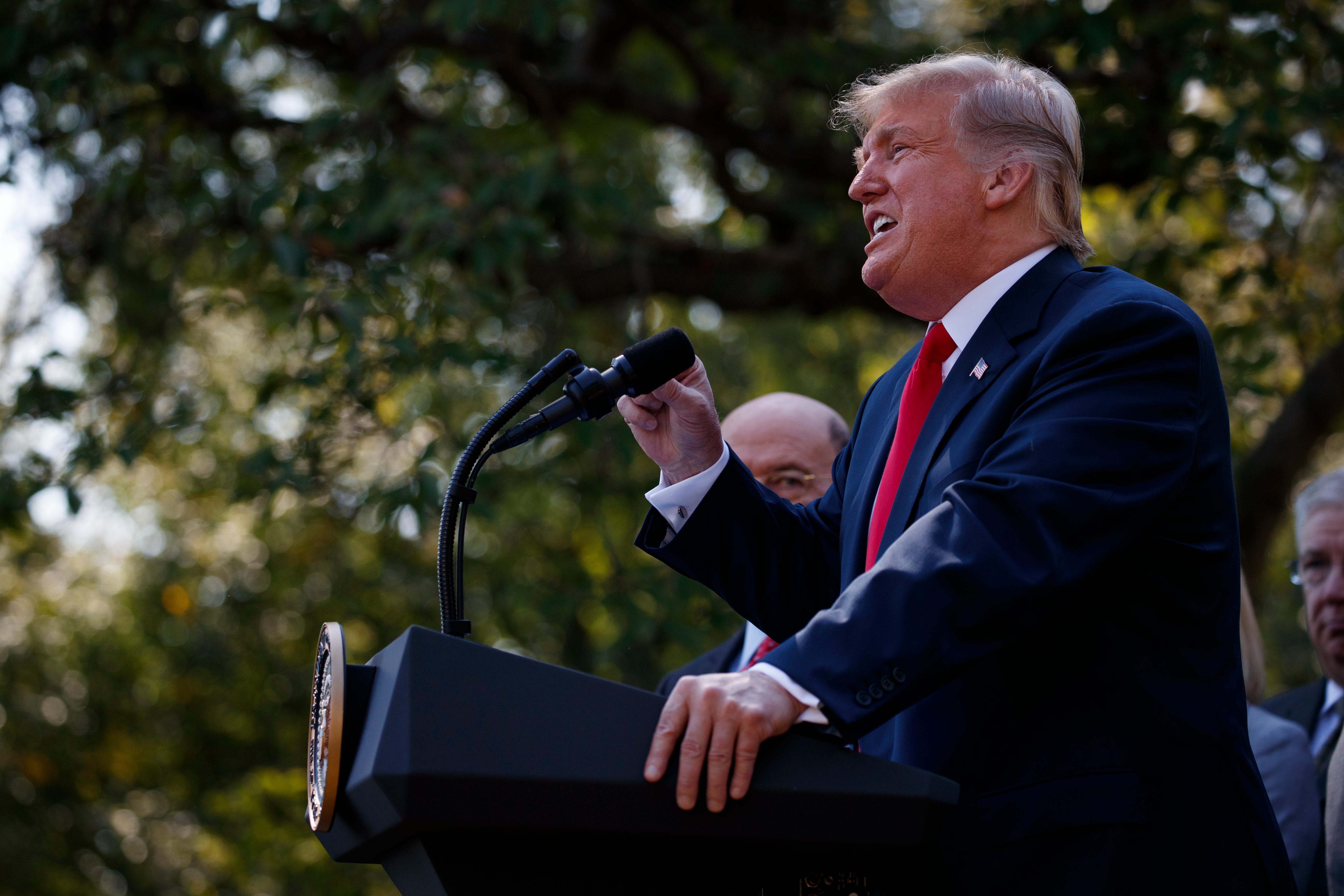Carmakers encouraged as Canada joins U.S.-Mexico trade deal
 Keith Laing
Keith Laing
Washington — Canada has agreed to join the U.S. and Mexico in a new trade deal that would replace the North American Free Trade Agreement, preserving automakers' hopes for a trilateral pact between the three nations.
But analysts said it could increase manufacturing costs and prompt manufacturers to raise prices — and sway carmakers' decisions about future small-car production in North America, which is already in decline due to poor consumer demand.
The new deal known as the United States-Mexico-Canada Agreement -- or USMCA -- would give at least six years of certainty to automakers who fretted about the possible collapse of the trilateral free trade zone that was established when NAFTA was enacted in 1994.
Without an agreement, tariffs of 25 percent could have been placed on Canada-built SUVs and pickups like the GMC Sierra and the Lincoln Nautilus.
"The elimination of a 25 percent tariff on imported vehicles is a huge win," said Ivan Drury, senior manager of industry analysis at the Edmunds.com automotive information company, "but the new regional value-content requirements mean that automakers will not able to source parts as freely, so there will be added costs associated with vehicle manufacturing."
Drury continued, "Given that new vehicle prices are already stretched to record highs, things could take an ugly turn for consumer wallets, especially considering the trend of continuously rising interest rates."
The announcement of a trilateral agreement brings to a close a contentious year-plus renegotiation that roiled the U.S. automotive industry. The agreement announced late Sunday by U.S. Trade Representative Robert Lighthizer and Canadian Foreign Affairs Minister Chrystia Freeland calls for increasing from 62.5 percent to 75 percent the percentage of a car's parts that have to come from one of the three countries to qualify for duty-free treatment.
The Trump administration had initially pushed to boost the so-called domestic content requirement for autos to as high as 85 percent, and add a 50 percent U.S. mandate. But Mexico and Canada balked at those proposals, and automakers vocally argued against them.
Additionally, the USMCA requires that 40-45 percent of an auto's content be made by workers earning at least $16 per hour.
Vehicles not meeting the requirements would be subject to a 2.5 percent duty.
Additionally, he USMCA contains provisions to protect up to 2.6 million cars and $32.4 billion worth of parts imported from Canada and Mexico from tariffs on imported vehicles that are being considered separately by the Trump administration.
The U.S. imported 2.4 million vehicles from Canada and 1.8 million from Mexico in 2017, according to the U.S. Department of Commerce's International Trade Administration. Canadian automotive parts imports to the U.S. totaled $30.1 billion in 2016, according to the ITA. Mexico exported $46 billion in auto parts to the U.S. in 2016, according to the Center for Automotive Research.
Read more: Trump: Trade deal returns US to ‘manufacturing powerhouse’
Read more: List of vehicles built in Canada and sold in U.S.=
Michelle Krebs, senior analyst for Autotrader, said that automakers will have to carefully weigh where they build small cars.
"The new NAFTA is just one piece of the puzzle," she said. "The U.S. is still at war with China on trade. That needs to be resolved. Agreements with the EU and Japan, where small cars are made and brought to the U.S., need to be completed.
"Each manufacturer will have to decide how many small cars they need," Krebs continued. "The popularity of all cars is in decline – hitting a record-low share in August with no end in sight. Manufacturers make little to no money on them. There will be much that goes into deciding what to build and where in the small car world."
Promise 'kept'
In a press conference Monday in the White House Rose Garden, President Donald Trump said, "I have long contended that NAFTA was perhaps the worst trade deal ever made."
"Since NAFTA’s adoption, the United States racked up trade deficits totaling $2 trillion, and it’s a much higher number than that," Trump continued. "With Canada and Mexico, it lost vast amounts of money and lost 4.1 million manufacturing jobs and 1-in-4 auto jobs. Throughout the campaign I promised to renegotiate NAFTA and we have kept that promise."
Trump said he intends to sign the agreement by November and submit it to Congress for approval. The deal will be subject to review in six years and will end in 16 years unless all three countries agree to another 16-year renewal.
Another central issue in the last-minute negotiations between the U.S. and Canada was access to Canada's dairy market for U.S. farmers. Under the new agreement, Canada will provide new access to U.S. dairy products and poultry products including chicken, eggs and turkey.
Some skepticism remains
Auto stocks traded higher on news of the trilateral agreement. Ford Motor Co. stock closed Monday trading at $9.32 per share, up 0.8 percent. General Motors Co. stock closed at $34.20, up 1.6 percent. Fiat Chrysler Automobiles stock closed at $17.99, up 2.7 percent.

John Bozzella, president and CEO of the Association of Global Automakers, which lobbies for foreign-owned automakers, said Canada’s decision to join the United States and Mexico is an important step, "but it does not alter the fact that the cost and complexity of complying with the new auto rules will pose serious challenges for U.S. automakers."
Jonathan Smoke, chief economist for Cox Automotive, noted that automakers are not out of the woods with tariffs yet.
"Nearly a quarter of new vehicles bought by Americans are assembled in countries outside of North America, and a substantial number of vehicles sold are dependent on parts from countries like China that remain very much in the crosshairs of the administration," he said.
But U.S. carmakers put a positive spin on the agreement.
Joe Hinrichs, Ford's executive vice president and president of global operations, said the company is "ready to be a collaborative partner to ensure this agreement is ratified in all three markets because it will support an integrated, globally competitive automotive business in North America. The benefits of scale and global reach will help to drive volume and support manufacturing jobs.”
General Motors added: "This agreement is vital to the success of the North American auto industry; we have long supported efforts to modernize it in a way that strengthens the industry and positions it for long-term success."
But Gary Jones, president of the United Auto Workers union, is wary.
"Given the history of loopholes in NAFTA," he said, "the UAW will withhold final judgment until all the pieces are put in place in order to determine whether this agreement will protect our UAW jobs and the living standards of all Americans.”
klaing@detroitnews.com
(202) 662-8735
Twitter: @Keith_Laing